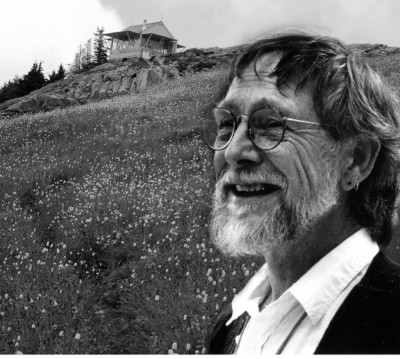 Everywhere I go, I’m asked if I think the universities stifle writers. My opinion is that they don’t stifle enough of them. There’s many a best-seller that could have been prevented by a good teacher.
Everywhere I go, I’m asked if I think the universities stifle writers. My opinion is that they don’t stifle enough of them. There’s many a best-seller that could have been prevented by a good teacher.
– Flannery O’Connor
At our most recent Author Talk event here at the Wellstone Center in the Redwoods writers’ retreat center, featuring Mary Roach and Kathleen Founds, I was struck by something Kathleen said.
She was talking about her Master of Fine Arts writing program at Syracuse University, which she attended specifically to work with George Saunders, whose advice she took to heart. But it was only when she left Syracuse behind, she said, that she could really act on putting into practice all that she had learned.
“In grad school, I unconsciously avoided putting my heart into my characters,” she told me afterward. “I was afraid that if I was too vulnerable or sincere or hopeful, my stories would be scoffed at or smacked down. The problem wasn’t the fiction writers in my workshop, who were lovely people! The problem was my lack of courage.
“After I graduated from Syracuse, I moved to a tiny town in Ohio, light years away from literary culture. All my stories were rejected by literary magazines. The odds were slim that anyone would read what I was writing, so I was able to unleash my inner life and be vulnerable. I was able to put my heart into my work.
“There’s that bromide oft-printed on inspirational posters: Dance like no one’s watching. Well, I was only able to write like nobody was watching . . . when no one was watching. It took total isolation from literary culture for me to shake off my inhibitions.”
Criticism of MFA programs – or even of writing produced by graduates of MFA program – tends to be absurdly broad brush. No two writers are alike, and the thousands of MFA graduates flung out into the world every year represent a staggering amount of variety in perspective, writing style and vision.
Kathleen’s words reminded me of the importance of following up one’s MFA years with fresh challenges – emphasis on “fresh,” preferably involving a lot of fresh air. Jack Kerouac famously spent two months alone on a mountain top, Desolation Peak (pictured above, with Gary Snyder), as a fire lookout, which is one way to get out in the real world to have the kind of experiences that can help deepen a sense of self.
No one wants to hear that they need to develop a sense of self. We all feel like we’re doing that all the time! And it’s not an area where trying too hard pays many dividends. It takes time, and patience, for a strong sense of self to emerge, and it is that sense of self that provides both voice and depth of vision in writing.
Reading Nabokov’s earlier novels, for example, like King, Queen, Knave, written in Russian during his unhappy interregnum in Berlin after Russia and before the United States, there is an unmistakable sense of a large talent still waiting to find itself. Nabokov did not much like Berlin and Germany, and engaged few people in his fifteen years of exile there – which may have to do with why he seemed to progress less artistically in those years than he did after he moved to the United States in 1940. A road trip across the vast West inspired his imagination – and parts of his master work, Lolita – and he felt he belonged in a way he never had in Germany.
“America is my home now,” he would say. “It is my country. The intellectual life suits me better than any other country in the world. I have more friends . . . more kindred souls than anywhere.”
I’m not arguing that young writers should go hit the road and play material hound, though there are worse things to do for your writing than a cross-country drive with a friend, loaded up with music, ready to veer left or right along the way as the mood strikes, ready to anchor the far end of a dive bar in nowheresville – or Chicago or Kansas City – and soak up your surroundings or the conversation of a neighbor. (In fact, my own training as a writer was helped in a big way by my years as a baseball beat writer for the San Francisco Chronicle, winding down after another deadline met over a beer or two and talking to locals in Detroit and Dallas and letting the small surprises rain down.)
I am arguing for variety of experience, not in a check-the-box, build-a-cool-sounding-resume spirit, but in a spirit of getting ready for serendipity to strike. So many writers, especially young writers, feel a burning desire to write or to be published without having a corresponding burning connection to particular material or themes. You don’t want to wake up at fifty to realize most of your stories evoke faculty wine-and-cheese parties or salute themselves for their rare departures out on a fishing boat or into the rough hands of a worker.
Here at the Wellstone Center in the Redwoods, our resident interns do writing exercises, learn from talking to our writers-in-residence and sometimes being mentored by them – but they also learn from their time with our two goats, Butterfingers and Doris, they learn from time lost in the quiet of our trails through the redwoods, they gain from taking on challenges (soap making or bread baking or goat hoof trimming) they never imagined they’d take on, and learn about themselves along the way.
I’d like to see more MFA graduates throwing themselves into that kind of experience, rather than stressing over getting stories published to build a list of credits. I hear there’s a vogue for sending out new work to many dozens of publications, without reading the publication in question, without having a clue about whether it might be the right home for a piece of work. That to me is not writing. Writing is a dialogue with a reader – you might be wrong in your guesses or assumptions about your reader, but you are still writing to a reader, not just to yourself.
– Steve Kettmann
Want to receive Steve’s blog on writers and writing every week by email? Sign up below.

